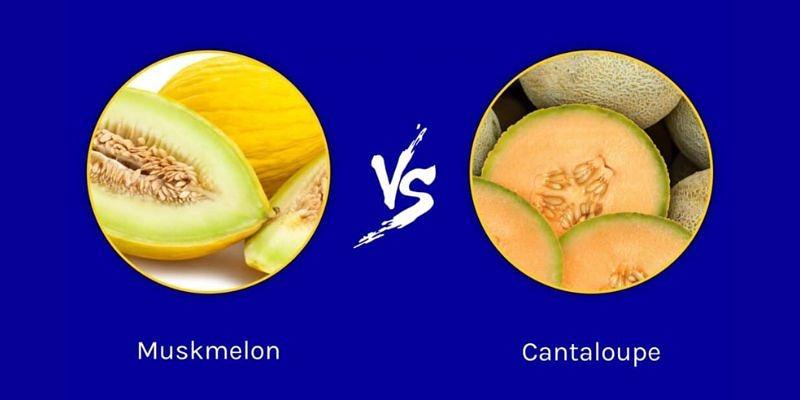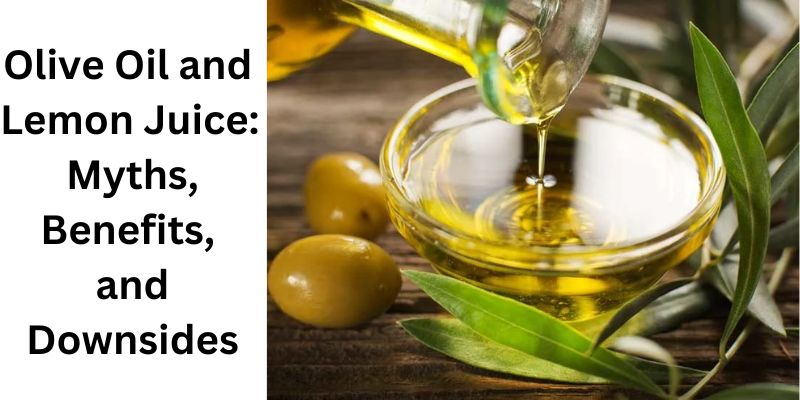While the muskmelon and cantaloupe may look similar and have a shared lineage, they have some important differences. Some fruit enthusiasts may have completely different opinions on which is sweeter or more flavorful; however, the major differences between these two melons lie in their origins, shapes, and size of seeds.
To uncover the truth about these two melons once-and-for-all we will explore how differently they grew in Europe versus India and delve into their many other details. Let's compare and contrast muskmelons vs. cantaloupes from looks alike to hugely differing histories!
What is a Muskmelon?
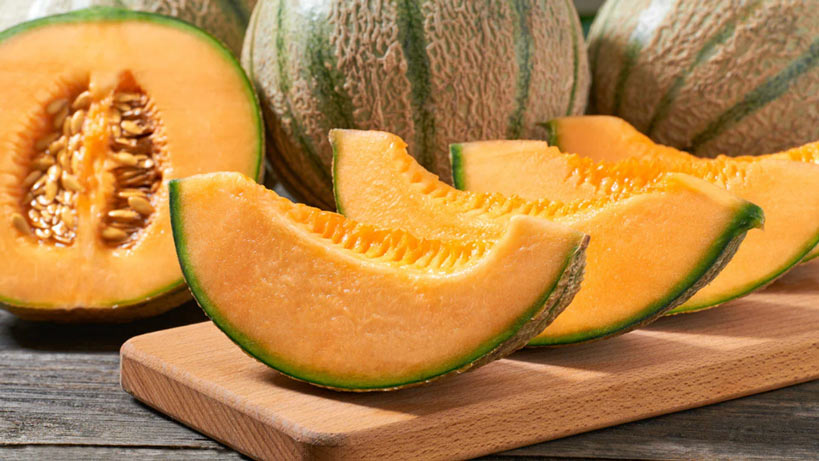
Muskmelon, a nutmeg or Persian melon, is an orange-fleshed, smooth-skinned variety of cantaloupe with a sweet, musky fragrance and flavor. It has a thin rind that is easy to peel or scoop out and can range from round to oblong.
What is a Cantaloupe?
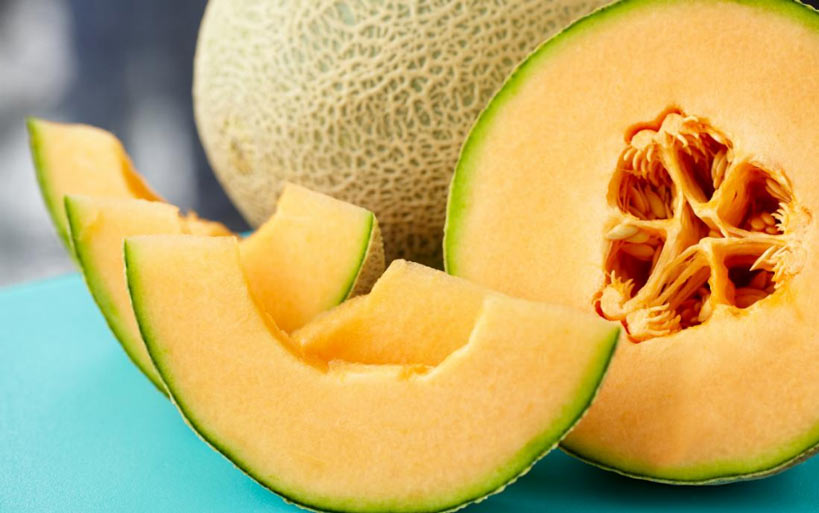
Cantaloupe is a round, orange-fleshed variety of melon with a thicker rind and pale green to white mottled skin. It has a mild, sweet flavor and juicy flesh ranging from light yellow to bright orange.
Muskmelon vs. cantaloupe: What’s the Difference?
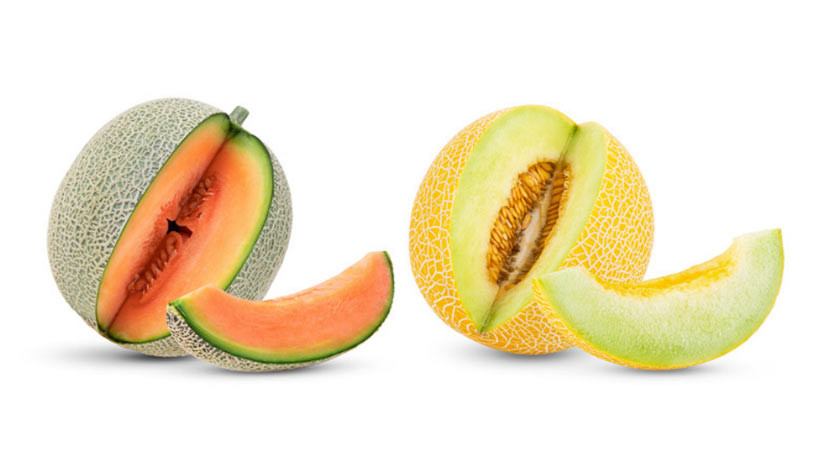
Only some people realize that there is more than one variety when it comes to melons. Two of the most popular types are muskmelon and cantaloupe. While both belong to the same species of melon—Cucumis melo—several key differences separate the two.
The most visible difference between muskmelon and cantaloupe is their outward appearance. When ripe, muskmelons are usually rounder with a more textured, warty outer skin and sweet aroma. On the other hand, cantaloupes have smoother, netted rinds in shades of yellow-green and orange or red flesh.
Regarding flavor, muskmelons are usually sweeter than cantaloupe, making them popular for desserts and smoothies. Cantaloupe has a milder flavor making it ideal for salads and savory dishes.
Nutritional value of muskmelon vs. cantaloupe
Regarding nutrition, muskmelon, and cantaloupe are rich in vitamins and minerals such as vitamin C, potassium, and magnesium. They also contain dietary fiber, which is important for digestive health and can help prevent constipation.
Muskmelons are higher in dietary fiber than cantaloupes, with 2.2 grams per cup compared to 1.5 grams per cup. They are also higher in calories, containing 54 calories per 100-gram serving, while cantaloupe has only 34 calories per 100-gram serving.
Muskmelons contain more vitamin A than cantaloupes, providing 738IU of vitamin A per hundred-gram serving compared to only 522 IU in cantaloupe. Vitamin A is important for healthy vision and helps protect against oxidative damage.
Both muskmelon and cantaloupe are good sources of vitamin C, providing 24mg and 21mg per 100-gram serving. Vitamin C is essential for a strong immune system and helps keep your skin healthy.
Muskmelon and cantaloupe are nutritious fruits that provide important nutrients to support overall health. They both have benefits and can be enjoyed as a balanced diet.
Health benefits
Eating muskmelon can provide many health benefits due to its high nutritional content. Below are some of the most notable health benefits associated with this fruit.
Supports immune function
Muskmelon is packed with nutrients like vitamins A and C, which are essential for a healthy immune system. Eating muskmelon regularly can help boost your body's natural defense against illnesses like the common cold and flu.
It may reduce cholesterol levels.
Studies have suggested that consuming muskmelon can help to lower LDL cholesterol levels, which is beneficial for heart health.
Good source of dietary fiber
Muskmelon is a good source of dietary fiber, with one cup providing 6.5 grams of it. Dietary fiber helps keep you full and can aid digestion by preventing constipation and other digestive issues.
Culinary uses of Muskmelon vs. Cantaloupe
Muskmelon and cantaloupe are both members of the cucurbit family, but they have some distinct differences in culinary uses.
Muskmelons have a sweet, mild flavor perfect for snacking alone or in fruit salads. It can also be used to make jams, jellies, and juices. It is commonly found in various cuisines worldwide and pairs well with herbs and spices, such as mint, cilantro, ginger, and chili peppers.
Cantaloupe has a slightly sweeter flavor than muskmelon and is often used in desserts and fruit salads. It can be pureed into a sorbet, blended for smoothies or shakes, or added to savory dishes such as soups and stews. Cantaloupe also pairs well with herbs like thyme, basil, and rosemary.
Both cantaloupe and muskmelon are great ways to add natural sweetness to any dish, but they offer different flavor profiles, so choose carefully according to taste.
Recipes with Muskmelons or Cantaloupes
The sweet, juicy flavor of muskmelons and cantaloupes can be used to make delicious recipes. Whether you're looking for a unique way to use the fruit in a salad or an interesting breakfast dish, each of these fruits can be used to create complex dishes with incredible flavor profiles.
When preparing a muskmelon or cantaloupe, choose a ripe and fragrant one. The flesh of the melon should be slightly soft and have a sweet scent.
If you're looking for ideas, consider the following recipes:
- Melon with Prosciutto and Balsamic Glaze: Use either muskmelon or cantaloupe slices and top them with thinly sliced prosciutto before drizzling with a balsamic glaze.
- Sweet and Spicy Melon Salad: Combine chunks of muskmelon or cantaloupe with cucumbers, jalapenos, and mint leaves for this delicious salad. Toss the mixture in a vinaigrette dressing made from olive oil, lime juice, honey, and salt.
- Muskmelon or Cantaloupe French Toast: For this unique breakfast dish, soak thick slices of either type of melon in an egg and milk mixture before dredging them in bread crumbs. Fry the slices until golden brown and serve with maple syrup for a delicious way to start the day.
FAQs
Are cantaloupe and muskmelon the same thing?
No, cantaloupe and muskmelon are two separate fruits. Cantaloupes have hard, net-like skin that is generally darker than muskmelons' light green hue. They also vary, with muskmelons being larger than cantaloupes on average. Regarding taste, muskmelons have a sweeter flavor, while cantaloupes tend to be more tart. Additionally, the flesh of a cantaloupe is usually orange or yellow, while that of a muskmelon is typically greenish-white. Finally, the seeds of a cantaloupe are found within the flesh, whereas those of a muskmelon are found in a separate cavity.
Why is muskmelon so expensive?
Muskmelon is a delicate fruit, which means it requires special care when it comes to handling and storage. This often leads to shorter shelf life for muskmelons, making them more costly than other melons.
Additionally, muskmelons require specific climate conditions to grow well (namely warm temperatures and plenty of sun), so they can be more expensive than other fruits during certain times of the year.
Finally, muskmelon prices can fluctuate depending on demand due to their popularity in certain parts of the world. These factors contribute to the higher cost associated with this special fruit.
What is the most expensive fruit in the world?
The most expensive fruit in the world is the Yubari King Melon. This hybrid melon is grown exclusively in Japan's Hokkaido region and can cost up to USD 50,000 per pair! Although other fruits such as Muskmelons and Mangosteens can be quite pricey, these cannot compare to the Yubari King Melon.
Conclusion
I hope this article has given you a better understanding of the differences between muskmelon and cantaloupe. While both are delicious fruits, they have different flavors, textures, nutrition, and appearance characteristics. So choose the right variety for your next meal or snack!
